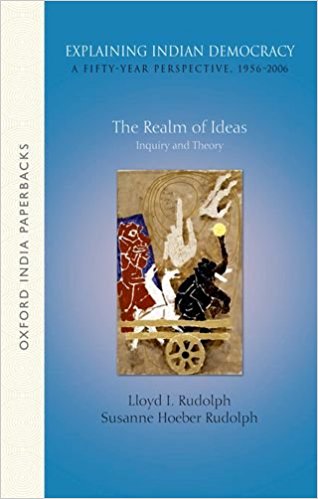The three volumes, Explaining Indian Democracy, bring together the research publications of Lloyd Rudolph and Susanne Rudolph over a period of fifty years. These essays are the product of a highly fruitful intellectual collaboration between two prominent scholars who are also wife and husband, which is rare in any profession. The essays cover a wide variety of themes and issues, ranging from epistemology and research methods in social science to political modernization, state formation, parties and party politics, agrarian politics, media and culture, bureaucracy, public policy, economic reforms and foreign affairs. Most of them transcend the conventional disciplinary boundaries of political science, sociology, social anthropology, political economy, history and psychology. They reflect the evolution of their perspective, the changing vocabulary of politics and shifts in the areas of interest in tune with changing times and research needs. Reading these essays we find an extraordinary commitment to the study of Indian politics and society in an empathetic manner, an attempt to challenge the reigning paradigms in comparative political analysis, to capture the dynamics or dialectics of Indian democracy, to take up case studies in order to generate generalizations, and to offer fresh insights and new interpretations of Indian politics.
For the convenience of readers, each volume is organized into different sections under specific themes, although many essays are not amenable to easy classification. Each section has an introduction, where the authors provide a synoptic view of the articles included in these sections, the central questions asked therein and the conclusions arrived at.

